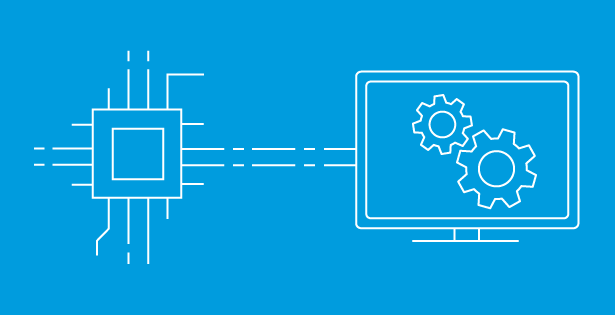Introduction: Why AI is the Future of Quality Control
Reducing quality risks with AI is now a strategic priority for manufacturers. According to the American Society for Quality (ASQ), quality-related costs can reach up to 40% of total operations. As product complexity increases and regulations tighten, companies must modernize quality and recall management to protect both reputation and revenue.

The Role of a Copilot Agent in Quality and Recall Management
AI-powered Copilot Agents are changing how organizations manage product quality and recalls. These interactive assistants:
-
Analyze data in real time
-
Identify affected product batches
-
Pinpoint root causes from historical data
-
Automate tasks like recall notifications
By integrating with Quality Management Systems (QMS), ERPs, and CRM tools, these agents provide actionable insights to quality engineers, operations managers, and compliance teams.
Inside the Architecture of an AI Copilot
The Copilot Agent runs on a three-layered architecture:
-
Data and Knowledge Sources – Pulling from internal systems, SOPs, reports, and regulations.
-
Copilot Intelligence – Using Copilot Studio, Power Automate, and AI models to drive actions and responses.
-
User Interface – Embedded into Microsoft Teams, Outlook, or Dynamics 365 for seamless access.
The system handles both structured (quality orders, ERP records) and unstructured (documents, feedback) data using Retrieval-Augmented Generation (RAG).
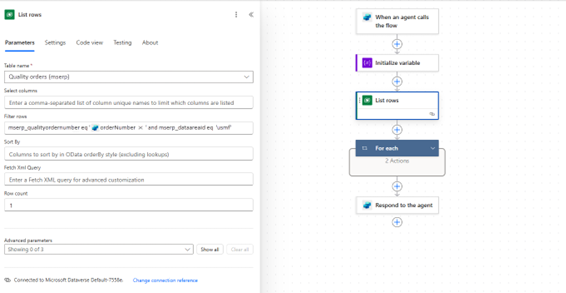
Figure 1: Power Automate flow that is connected to the Quality orders data entity that fetches the quality order information and returns it to the Copilot Agent.
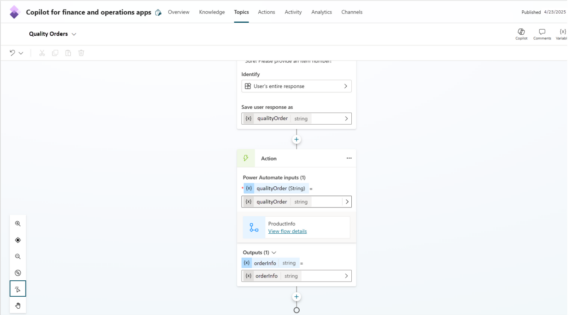
Figure 2: Copilot topic flow showing Identity, Power Automate action, and output nodes.
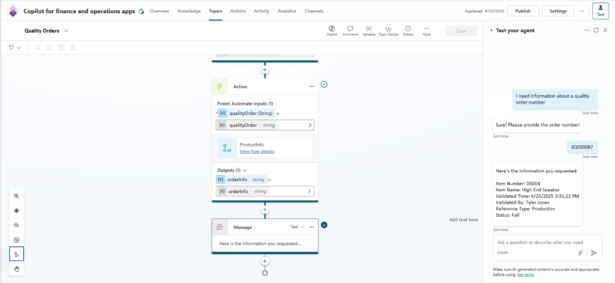
Figure 3: Test chat on the right side of the screen confirming the Copilot Agent returns quality order information from the connected ERP data source.
Security and Compliance by Design
Security is baked into every Copilot deployment:
-
Entra ID for user authentication
-
Role-based access
-
Data Loss Prevention policies
-
Individual connector authentication (e.g., Salesforce)
Microsoft Copilot Studio also allows developers to define permissions and limit generative AI capabilities based on user role or geography.
Step-by-Step Guide: Building a Quality Copilot
To build a robust Copilot, developers define:
-
Conversation flows: User prompts and AI responses
-
Actions: System queries, data pulls, and content generation
-
Triggers: Events that initiate automated workflows
Tips for clear, effective Copilot responses:
-
Set tone and role through system prompts
-
Include sample dialogues (“few-shot examples”)
-
Provide data-backed responses
-
Use domain-specific phrasing and tone
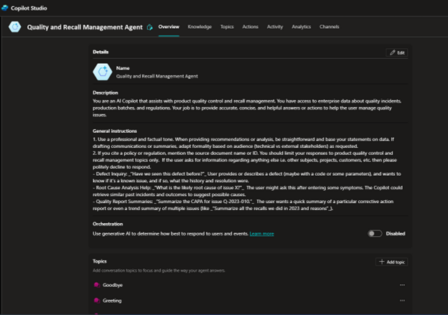
Figure 4: Copilot Studio overview page for the Quality and Recall Management Agent
Governance and Validation: Ensuring Accuracy and Trust
To ensure reliability, organizations should:
-
Ground responses in internal data
-
Keep humans in the loop for decisions
-
Apply filters and guardrails for sensitive topics
-
Continuously monitor and test agent performance
Microsoft’s Power CAT Copilot Studio Kit aids with automated multi-turn testing, helping teams identify gaps before launch.
Unlocking Competitive Advantage Through AI
A well-governed Copilot:
-
Accelerates investigations and recalls
-
Improves regulatory compliance
-
Protects brand reputation
-
Enables proactive quality improvement
By combining Microsoft 365 Copilot, Dynamics 365, and Power Platform tools, RSM helps companies transform their quality operations using custom Copilot solutions tailored to industry and business needs.
Ready to reduce quality risks with AI?
If you’re interested in building a Copilot Agent tailored to your quality and recall management needs, contact us here or visit our webpage to explore the full range of services we offer for manufacturers. Let RSM help you drive efficiency, compliance, and innovation with AI-powered solutions.

 RSMUS.com
RSMUS.com